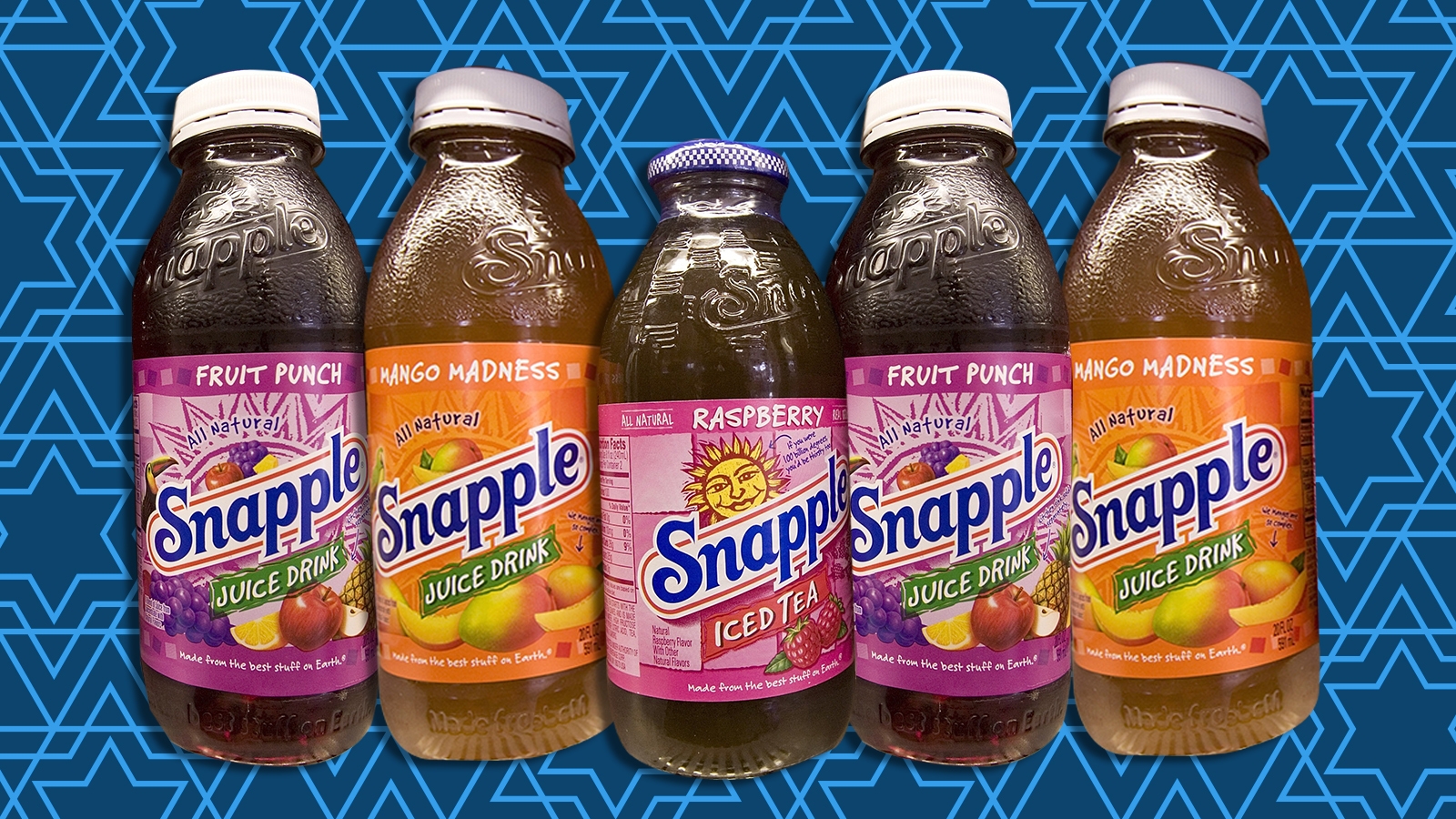Jews’ love affair with seltzer is well-documented, as are their contributions to the soda industry, but their roles as titans of tea is less well-known.
The OGs of the Jewish tea scene include Samuel Zechnowitz, who started the Swee-Touch-Nee company in 1880. “Swee-Touch-Nee” is a rough transliteration of the Russian “tsvetochnyy chay” (flowery tea) and the original packaging included the name written in Cyrillic. A few years later, Zechnowitz emigrated from Russia to New York City, where he opened a tea store in the Lower East Side. The small shop eventually grew into The Consolidated Tea Company, which for the next several decades continued to be owned and run by the Zechnowitz family. It was only in 2015 that the company was dissolved and Swee-Touch-Nee was sold to a competing organization. Today, Swee-Touch-Nee is vended to loyal consumers through the Bromley Company, with its signature slogan, “The Aristocrat of Tea.”
In 1972, three Jewish businessmen took a leaf from Zechnowitz’s playbook when they banded together to form Unadulterated Food Products, designed to supply fruit juices to local health food stores. Arnold Greenberg, Hyman Golden and his brother-in-law Leonard Marsh initially launched Unadulterated Foods as a side gig. Among their first products was a fermented apple juice whose carbonation gave it a “snap” that inspired the portmanteau “Snapple” (snappy + apple). The catchy moniker soon supplanted the company name and Snapple expanded its line of products in the 1980s to include sodas (cream and root beer remain nostalgic favorites) and fruit drinks, as well as all-natural juices.
In 1987, Snapple turned to tea and never looked back. While some like it hot, Greenberg and crew do not, and their decision to chill their debut brew was the right one. Snapple’s Lemon Iced Tea became a great commercial success and an industry game-changer with regards to its dearth of preservatives made possible by a unique bottling process. Sales rose by 60% in just one year and the Snapple family of flavors increased more than five-fold, enabling them to literally edge out the competition by dominating valuable shelf space in stores.
The Nosher celebrates the traditions and recipes that have brought Jews together for centuries. Donate today to keep The Nosher's stories and recipes accessible to all.
When Snapple launched its first major national television advertising campaign in the 1990s to promote its rapidly proliferating product line, they did not shy from their Jewish roots, but rather embraced them. Actor Wendy Kaufman was appointed “The Snapple Lady,” an affable zaftig figure with a distinctive Long Island drawl, who quickly endeared herself to viewers with her no-nonsense, humorous responses to consumer letters.
Since 1992 Snapple has changed corporate hands through multiple sales, beginning with its purchase by Thomas H. Lee of the eponymous investing partnership. In 1984, Lee sold it for $1.7 billion to Quaker Oats, who ended up selling just over a decade later. After a few other sales, Snapple is currently run by the Dr. Pepper Snapple Group.
One of the newest cuppa contenders on the Jewish tea scene is Mazel Tea, founded by Allan Shulman in 2021. Necessity, they say, is the mother of invention, an aphorism that hits particularly close to home for Shulman, whose idea for a Jewish-themed tea company was spurned by his inability to find a suitable present for his mother-in-law. Shulman initially created a single personalized tea set for his MIL, but its popularity among his friends and family (many of whom clamored for their own version to gift to others) led him to formalize his venture. Mazel Tea’s feature three teas include “Bubbe’s Blend” (a nod to Shulman’s bubbe’s kompot); “Shalom Shlof” (a sleep-aid blend); and “Oy Vey, Earl Grey!” In the future, Shulman plans to expand Mazel’s offerings, always with the goal of “promoting yiddish language and culture in a fun and light-hearted way.”
Another important branch of the Jewish American Tea dynasty is the Republic of Tea. Launched in 1972, this high-end tea manufacturer is the brew brainchild of Bill Rosenzweig, Mel Ziegler and Patricia Ziegler (the latter two of whom are responsible for another retail “government”, Banana Republic). They sold the company in 1994 to Pam and Ron Rubin, two Jews from St. Louis, Missouri and their son Todd took over as company president in 2015. The Rubins’ business success enabled them to spearhead numerous philanthropic ventures, including the Rubin Israel Experience. This program provides full financial support to ten adults from the St. Louis area who have never been to Israel in order to “strengthen the connection of Jewish adults to Israel and broaden their perspective for their Jewish community.”
Like their American counterparts, Israeli Jews are also heavily invested in tea, though their relationship is less tepid: they like it calm, cool — and infused. Tea is commonly bought by weight, often from street vendors, who parcel out scoopfuls of the chosen blend for customers to take home. There’s also somewhat of a national obsession with “halitot,” herbal bends in flavors including sage, spearmint, lemongrass, hibiscus and verbena. These blends are enjoyed on their own or sometimes paired with black tea for an extra kick of caffeine.
Now that we’ve spilled the proverbial tea on Jews and their beloved brews, why not consider adding some to your repertoire of daily caffeinated or herbal libations? We promise the learning curve to finding your new favorite cup will not be steep.



